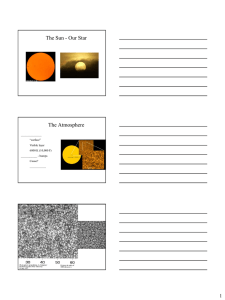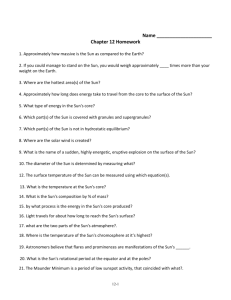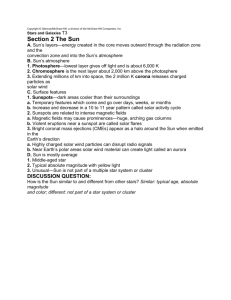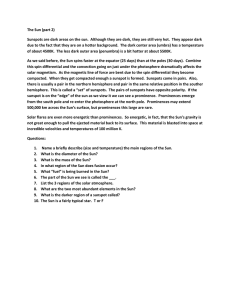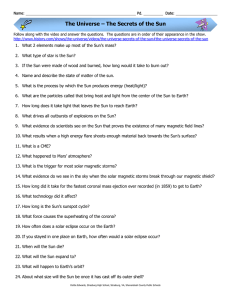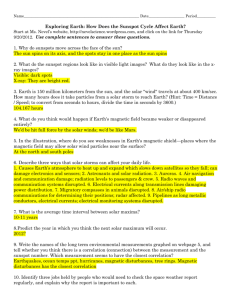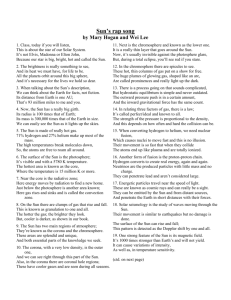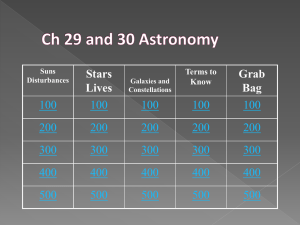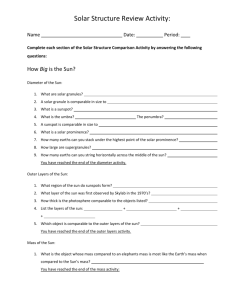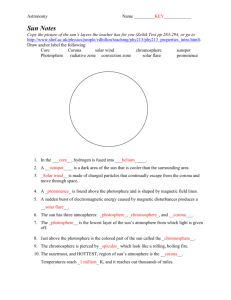doc - MIT Haystack Observatory
advertisement
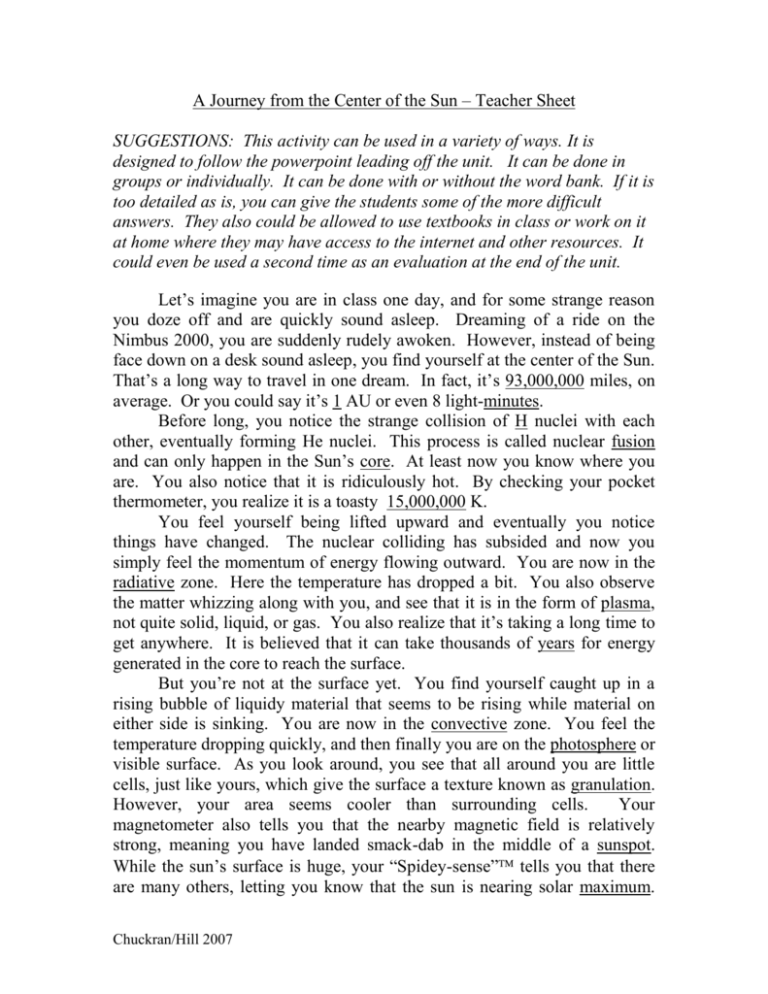
A Journey from the Center of the Sun – Teacher Sheet SUGGESTIONS: This activity can be used in a variety of ways. It is designed to follow the powerpoint leading off the unit. It can be done in groups or individually. It can be done with or without the word bank. If it is too detailed as is, you can give the students some of the more difficult answers. They also could be allowed to use textbooks in class or work on it at home where they may have access to the internet and other resources. It could even be used a second time as an evaluation at the end of the unit. Let’s imagine you are in class one day, and for some strange reason you doze off and are quickly sound asleep. Dreaming of a ride on the Nimbus 2000, you are suddenly rudely awoken. However, instead of being face down on a desk sound asleep, you find yourself at the center of the Sun. That’s a long way to travel in one dream. In fact, it’s 93,000,000 miles, on average. Or you could say it’s 1 AU or even 8 light-minutes. Before long, you notice the strange collision of H nuclei with each other, eventually forming He nuclei. This process is called nuclear fusion and can only happen in the Sun’s core. At least now you know where you are. You also notice that it is ridiculously hot. By checking your pocket thermometer, you realize it is a toasty 15,000,000 K. You feel yourself being lifted upward and eventually you notice things have changed. The nuclear colliding has subsided and now you simply feel the momentum of energy flowing outward. You are now in the radiative zone. Here the temperature has dropped a bit. You also observe the matter whizzing along with you, and see that it is in the form of plasma, not quite solid, liquid, or gas. You also realize that it’s taking a long time to get anywhere. It is believed that it can take thousands of years for energy generated in the core to reach the surface. But you’re not at the surface yet. You find yourself caught up in a rising bubble of liquidy material that seems to be rising while material on either side is sinking. You are now in the convective zone. You feel the temperature dropping quickly, and then finally you are on the photosphere or visible surface. As you look around, you see that all around you are little cells, just like yours, which give the surface a texture known as granulation. However, your area seems cooler than surrounding cells. Your magnetometer also tells you that the nearby magnetic field is relatively strong, meaning you have landed smack-dab in the middle of a sunspot. While the sun’s surface is huge, your “Spidey-sense” tells you that there are many others, letting you know that the sun is nearing solar maximum. Chuckran/Hill 2007 This condition occurs roughly every 11 years, and also leads to solar flares and coronal mass ejections (CME’s). In other words, the sun is in a highly active period. Scientists have observed the sun’s magnetic field reversing at the peak of this cycle. CME’s are dramatic eruptions, sending massive amounts of matter and energy away from the sun. If they happen to erupt in the direction of Earth, our ionosphere will be pelted and we would see auroras down on the surface. These “storms” can also disrupt satellite transmissions and cause power failures. Meanwhile, as you gaze across the sun’s surface, you see giant arcs of gas, known as prominences. These monstrous eruptions arch over sunspot groups, supported by the magnetic field. They may last for days or even weeks. The sun’s corona or crown, is ridiculously hot, and astronomers aren’t sure why. This is the part that can only be seen from Earth during a solar eclipse. Using your “Proton Glasses”, you just barely observe a stream of particles flying past at high speed. It is hard to see since the solar wind has such a low density. Since you are only the size of an atom, you notice that it is slowly but surely pushing you away from the sun and toward Earth. As you finally approach Earth, you are excited to be home. Then you realize that without protection, you may burn up in the atmosphere like a meteor. Just as the friction is starting to toast you……….. “WAKE UP ___________ !!!! What are you doing sleeping in my class?!?!” OPTIONAL WORD (and NUMBER) BANK prominences magnetic H years energy power auroras sunspot low weeks mass maximum radiative plasma granulation solar satellite matter meteor photosphere corona 1 15,000,000 93,000,000 Chuckran/Hill 2007 minutes convective atmosphere ejections eclipse field fusion wind ionosphere core 11
